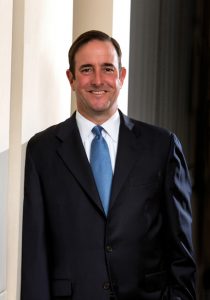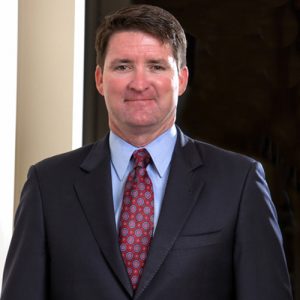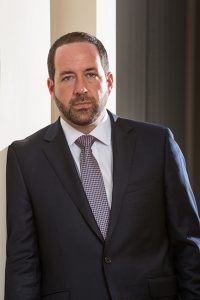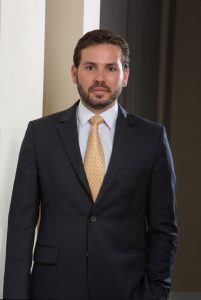The Haggard Law Firm’s Managing Partner Michael Haggard will be a presenter during the 29th Annual Southern Trial Lawyers Association Conference next month.
Continue reading “Haggard STLA Presentation: Security is On Everyone’s Mind”
The Haggard Law Firm’s Managing Partner Michael Haggard will be a presenter during the 29th Annual Southern Trial Lawyers Association Conference next month.
Continue reading “Haggard STLA Presentation: Security is On Everyone’s Mind”
Several Haggard Law Firm Attorneys have been named to The South Florida Legal Guide’s 2017 “Top Lawyers” list.
The attorneys selected for the list include Michael Haggard, “Andy” Haggard, Douglas McCarron, Christopher Marlowe, Todd Michaels and Jim Blecke.
Continue reading “Haggard Law Attorneys Named 2017 “Top Lawyers””
Congratulations to our Managing Partner Michael Haggard who recently became a member of The National Trial Lawyers Top 100 Trial Lawyers organization composed of the premier trial lawyers from each state or region who meet stringent qualifications as civil plaintiff and/or criminal defense trial lawyers.
Haggard Law Firm attorney Todd Michaels was named a Most Effective Lawyer of South Florida, in the Personal Injury category, by the Daily Business Review.
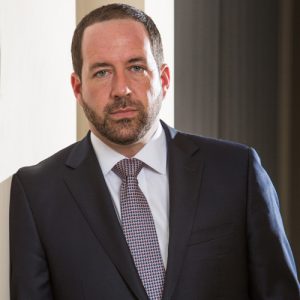
Today, the periodical published its article detailing the case cited in the announcement of the honor Michaels, a $3.1 million settlement to the family of 21-year-old Charles Lucas, who was shot to death outside a Miami nightclub in 2011 while he tried to diffuse an altercation.
The Daily Business Review has just released its list of 2016 Most Effective Lawyers.
We are proud to report that Haggard Law Firm attorneys Todd Michaels and Pedro Echarte were the only two lawyers in Miami-Dade County recognized in the Personal Injury category. Michaels was named the Most Effective Lawyer, while Echarte was the only other finalist listed.
Continue reading “2 Haggard Law Attorneys Recognized among ‘Most Effective Lawyers’”
The Daily Business Review recently published a guest article written by The Haggard Law Firm’s Christopher Marlowe on mediation. Marlowe’s article, Reassess Expectations: Finding Value in Mediation was included as part of DBR’s special section on arbitration and mediation published November 16th, 2016.
The full article: Reassess Expectations: Finding Value in Mediation By Christopher Marlowe
The Haggard Law Firm’s Managing Partner Michael Haggard has been selected as a Lifetime Achievement honoree among America’s Top 100 Attorneys®.
Selection to America’s Top 100 Attorneys® is by invitation only and is comprised of the nation’s most exceptional attorneys whose accomplishments merit a lifetime achievement recognition. Lifetime Achievement recognition among America’s Top 100 Attorneys® is meant to identify and promote the most outstanding and impactful legal talent currently serving throughout the nation. Only 100 attorneys in each state* will receive this honor and be selected for Lifetime Achievement Membership among America’s Top 100 Attorneys®. Selection is not achieved based on a single accomplishment or a single great year of success, but rather on a lifetime of hard work, ethical standards, and community enriching accomplishments that are inspiring among the legal profession. This honor is not given every year, or every 10 years; it is given but once-in-a-lifetime. To help ensure that all attorneys selected for membership meet the very high standards expected for selection, candidates for lifetime membership are carefully screened through third-party research and statistical analysis based on a broad array of criteria, including the candidate’s professional experience, lifetime achievements, significant case results, peer reputation, and community impact . While selection for any award, honor, or exclusive membership organization is always subjective in nature, we developed our comprehensive multi-phase selection process in an effort to help ensure that only the attorneys whose lifetime achievements extol the legal profession are chosen. With these extremely high standards for selection to America’s Top 100 Attorneys®, less than one-half percent (0.5%) of active attorneys in the United States will receive this honor — truly the most exclusive and elite level of attorneys in the community.
By: Christopher Marlowe, The Haggard Law Firm
Preparing to exceed the burden of proof and maximizing damages begins at client signup. The defense counsel has a head start. From the moment of loss, the defendant has secured or destroyed evidence, interviewed witnesses, researched the client, developed theories of defense, comparative fault, and otherwise played five or six key chess moves before plaintiff counsel even knew they were in the game.
Assuming the defendant is tireless and meticulous in its work is the only safe and essential assumption plaintiff counsel should make when preparing a case. Regardless of the cause of action, assume that the plaintiff and every friendly known witness has a history that, if known, will adversely affect the ultimate outcome. Until proven otherwise through the use of public records and interviews, all of which should occur pre-suit outside of formal discovery, remain vigilant in learning everything to know about the client and witnesses that may be called on throughout the litigation. Background checks, civil, criminal and family court files all will either confirm a cautiously optimistic impression of the plaintiff, or prepare to deal with the collateral—usually irrelevant, but always distracting—attacks upon the person of your client when the time comes. The same exercise is performed upon all anticipated defendants.
This pregame ritual requires an attorney/client relationship that exceeds the formality of the client contract. As advocates, attorneys should remain focused on the end game, but along the way, the attorney-client relationship must be a candidly safe space. Building the trust necessary to avoid surprises down the line involves introducing other staff upon initiation of the attorney-client relationship. My assistant regularly phones witnesses and clients, even when no information is needed and when no deadlines are looming. This process signals to the client the reality that we are working hard for them, and increases the probability that we will learn in advance of any issues that may prove troublesome down the road.
Once in suit, the rules of discovery and formal deadlines begin to take hold of an attorney’s case building efforts, which makes the “informal” pre-suit information gathering process all the more important. As such, guard against rushing into suit. The time to mercilessly press for a special set trial begins after committing to the case armed with all reasonably available information and background materials on everyone involved.
Attorneys know in advance those materials that will be asked of the clients in standard discovery requests, but shouldn’t attorneys have learned as much as possible about the defendant and possible witnesses before filing suit? Filing suit is the moment in which we regain the tactical edge, because together with the complaint, targeted discovery requests based on information and materials we learned pre-suit ensure the defendant is responding to us rather than the other way around. And when the inevitable discovery is propounded upon the client, staff and attorney time is not wasted gathering materials and information that should have been in their possession from the beginning.
Whether an automobile accident, premises liability, medical negligence or product liability case, pre-suit research should inform attorneys of obstacles to success, and tools available to address those challenges as they arise. The internet is a tremendous resource, which should be used to identify the original source materials available for more detailed exploration. For example, in a premises liability case at a shopping mall, an attorney may not have pre-suit access to the leases between the various merchants and the management company or landowner. But if applicable to the facts of the case, the county record department will have any relevant easements pertaining to the property on file, often with supporting materials that one would not expect to find in a clerk’s office, including correspondence between landlords and tenants. In a dram shop case, the state licensing board for alcohol permits will have submissions from the applicant in order to have obtained the license to serve alcohol. The documents may include extensive correspondence by the soon-to-be defendant regarding the scale and scope of the intended use of that license, prior negative incidents, and attorneys may be surprised by the detailed photographs or schematic drawings of the establishment.
This pre-suit effort likely will not deliver a case on a silver platter. It may not ultimately provide the silver bullet at the first key deposition, where information obtained outside of discovery truly has the ability to surprise opposing counsel. But those attorneys who have dug as deeply as possible into all foreseeable issues and contingencies pre-suit will more efficiently prosecute the case and be ready to confidently select a jury the first time the case is up at calendar call. And, if an attorney by chance does find that silver bullet before the case is even filed, all the better.
By Christopher Marlowe, Partner, The Haggard Law Firm (pictured below)
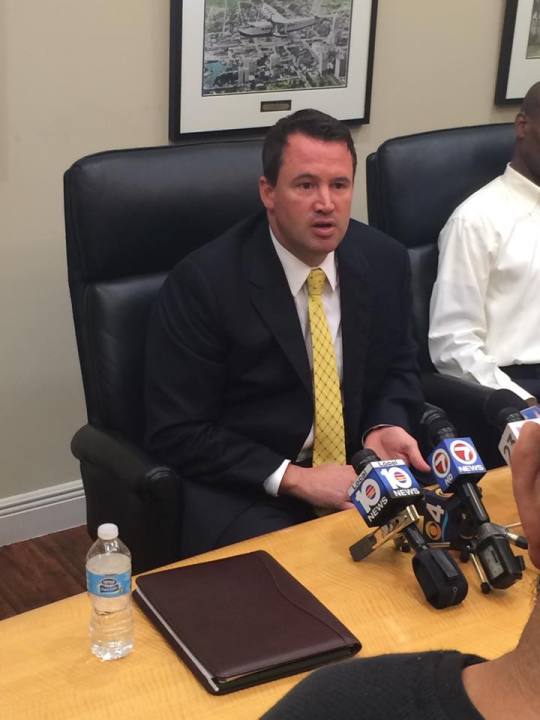
This article was firs published in the Daily Business Review:
The Haggard Law Firm’s William Haggard, Michael Haggard, Douglas McCarron, Christopher Marlowe, Todd Michaels and James Blecke have all been named to the 2016 Super Lawyers List.

